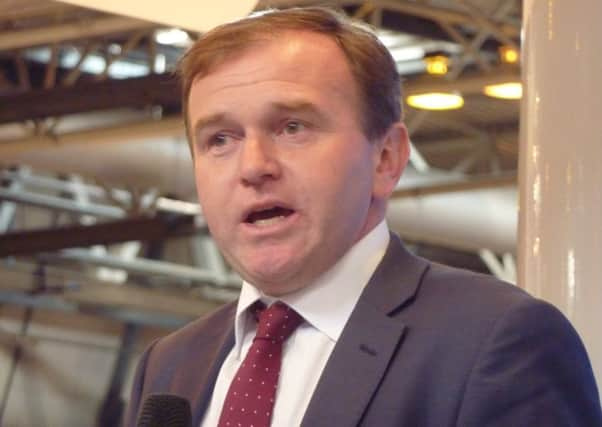EU referendum: Industry is constrained by EU


His wife had always done the paperwork on the farm but had sadly died of cancer. With everything going on his life, he had missed the deadline for submitting his application form. At each stage of the appeal process, people said the same thing: that they felt tremendous sympathy for the farmer but due to strict EU rules he must forfeit his entire payment for that year.
I disagreed, so sent back an instruction to pay him. He had just lost his wife and, after all, deadlines are arbitrary. A few days later, a group of worried looking lawyers and officials trooped into my office to explain the intricacies and risks of the EU regulations and to invite me to reconsider. Then we argued about it for six months.
Advertisement
Advertisement
The reality of working within EU law is that trying to do the simplest of things becomes curiously complicated and often impossible. Some 80 percent of legislation affecting DEFRA comes from the EU with about 40 percent of all EU regulations affecting the UK falling within its remit.
It is all pervasive: how many farm inspections there must be in a given year; what proportion of those inspections must be random; how much a farmer must be fined if he makes a mistake; how much he should be fined if he makes the same mistake twice; the precise dimensions of EU billboards and plaques that farmers are forced to put up by law; the maximum width of a gateway; the minimum width of a hedge; the maximum width of a hedge; what type of crop must be grown over the hedge; whether a cabbage and a cauliflower are different crops or should be deemed the same crop. The list goes on forever and it’s stifling.
Compliance with this plethora of farming regulations is enforced through a complex and rather dysfunctional system of penalties called “disallowance”. Auditors working for the EU Commission can levy fixed percentage fines against the government on the entire CAP budget for perceived breaches in the enforcement or administration of regulations. When there is disagreement, there is a mediation process but it is designed so that the Commission holds most of the cards. If we vote to leave on 23rd June, the UK government will continue to give farmers and the environment as much support as they get now. The Prime Minister has made that clear and I agree with him. After all, non-EU countries like Switzerland and Norway actually give more support to their farmers than we do. In the scheme of things, the amount of money spent on our countryside and wildlife is very modest when compared with spending on other departments. But we could spend our money more effectively if we had control.
We will also maintain a free trade agreement. Last year, we exported £7.5 billion worth of food to the EU but we imported food worth £18 billion. We have an annual trade deficit with the EU in food alone of £10 billion so they need a free trade deal.
Advertisement
Advertisement
I believe that there should be four key themes to a future UK agriculture policy. Firstly, we must invest more in science and technology if we want our farms to make the next step forward. New genetic breeding techniques such as gene editing could reduce our reliance on pesticides so we should support their development and put in place a new UK regulatory regime based on evidence and science, rather than the politics of the EU.
Secondly, farming has always been a risky business because of the weather and price volatility. Farmers want to earn their profit from the market but they need a helping hand when things go wrong. I want us to explore the potential for government backed insurance schemes like they have in Canada and futures markets like they have in the US to help mitigate risk
Thirdly, we must replace the existing system of “cross compliance” rules and the chaos caused by an annual application process with something simpler and more rounded. I am interested in exploring a new farm area payment which rewards any farmer who signs up to privately operated, UKAS accredited schemes that promote basic measures to deliver environmentally sensitive farming.
Finally, to promote improved wildlife habitats and higher animal welfare standards, we would put in place a scheme similar to the environmental stewardship scheme we have now but we would make it simpler and broaden the remit of schemes to include measures that improve animal welfare.
Advertisement
Advertisement
And what of the farmer whose wife had died of cancer? I overruled everyone and paid him. However, there must be a better way of doing things. I see exceptional talent and technical expertise within Defra but it is constrained and hindered by the EU. We don’t have to put up with this nonsense any longer.
The 23rd June is your chance to send a message to Brussels that you are not prepared to be a doormat anymore. I want to be the first Farming Minister in over forty years who has the power to put things right and to deliver the change our farming industry so desperately needs. If you want change too, then don’t throw away your chance to vote for it. Vote to leave.